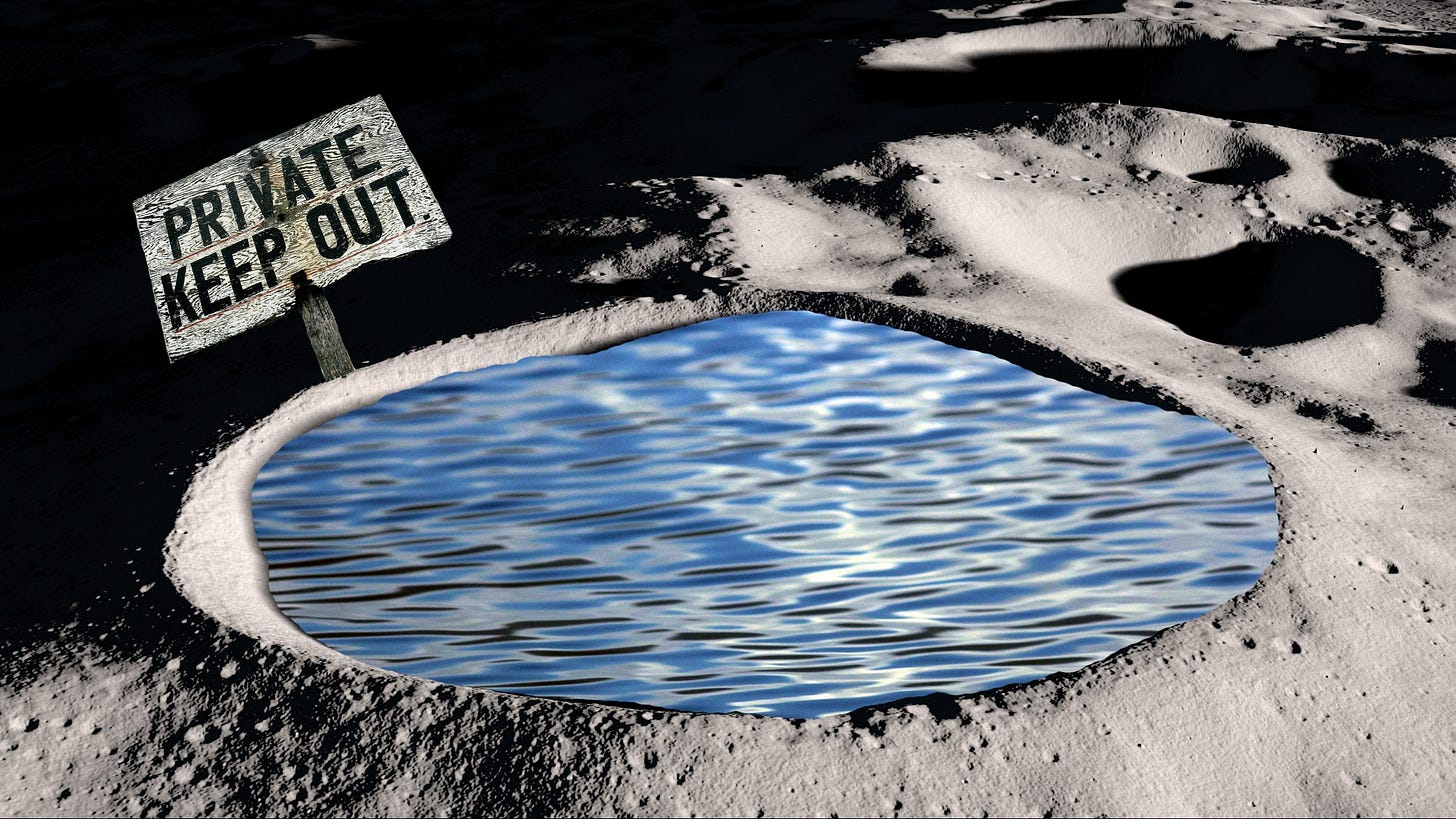Leave the Moon Alone
We are the reason we can’t have nice (celestial) things.
Earlier this week, NASA announced a major breakthrough discovery: the presence of water and ice in greater amounts than previously detected on the moon’s surface.
The news was teased well-ahead of time and managed to drum up the kind of excitement only reserved for awe-inspiring scientific discoveries and, more recently, the awe-inspiring Trump deathwatch. And when the specifics were finally announced on Monday, they arrived alongside a world of possibility—for future explorations, experiments, and of course, for space pioneering.
Yes, the “widespread hydration” on the lunar surface will surely open a lot of doors for science and the astronauts who journey to our moon. It also, in its stated goal, will open the door to draining the resources of our only satellite. That pursuit is something we humans cannot seem to resist, even when it’s done to the detriment of ourselves and the place we call home.
Obviously the moon is not Earth. No one lives there (that we know of). It’s not home to the Great Barrier Reef, the Amazon rainforest, Mount Everest, or the Grand Canyon. It’s not the rare gem of the planet we all inhabit, which has a stunning capacity for life—the only place quite like it as far as we know. The moon is essentially a big, powdery, gray rock that got caught by our mass. We already went and saw decades ago, and now we might as well conquer and start planning our great escape from the planet we’re rapidly destroying. How much damage could we possibly do?
The prospect of water extraction is obviously thrilling in many ways (yes it IS, haters). Space might be our Final Frontier, but let’s be real, we’re not actually able to explore all that much of it in person. Hello moon, hello Mars—that’s about it for now, and maybe forever. Bringing water with us on our travels is heavy and costly, and while extraction will be probably tricky, having it already there onsite makes exploration and colonization a helluva lot easier. Yes, this is all far off (though maybe not as far off as you think), but water is a huge issue in the quest for settlement outside Earth—and the moon just helped to solve a bit of that monster problem for us.
Just imagine it, though: the year is 2050, and as the world burns both figuratively and literally all around us, government space agencies from around the world and egomaniacal tech billionaires are engaged in a prolonged clusterfuck of competition for who owns the moon, who gets to make money off of it, and who gets to say they’re first/best/only, and which brand gets to claim the first billboard on the moon's already-depleted soil. “Discovery” for human beings is almost always paired with destruction. Future habitation in any amount won’t simply utilize the moon’s assets any more than we simply utilized the oil, natural gas, water, coal, and other natural resources demanded by the behemoths of industry. Humans don’t occupy, we overwhelm. Imagine us doing it simultaneously on two celestial bodies in orbit.
And please don’t get me started on moon bottled water, moon face cleanser, moon-irrigated vegetables, moon douches, moon tummy tea, moon juice for pets, and moon spas. The moon doesn’t know about capitalism yet, and I don’t think we should tell her.
Honestly, despite my love for the moon, my stress and anguish isn’t really for that place in the sky, but for the one below our feet. As this year of NEWS NEWS NEWS and STRESS STRESS STRESS has marched on, the climate has continued to suffer at a distressing rate. Meanwhile the people we’re relying on to rise above the absolute bare minimum on climate reform are falling all over themselves to say how much they love fracking. Weird how I'm not more thrilled to be casting my vote!!
I’m happy for the hardworking scientists, their discovery, and the moon, I really am. I just wish Manifest Destiny wasn’t here to piss on its humble dust.



